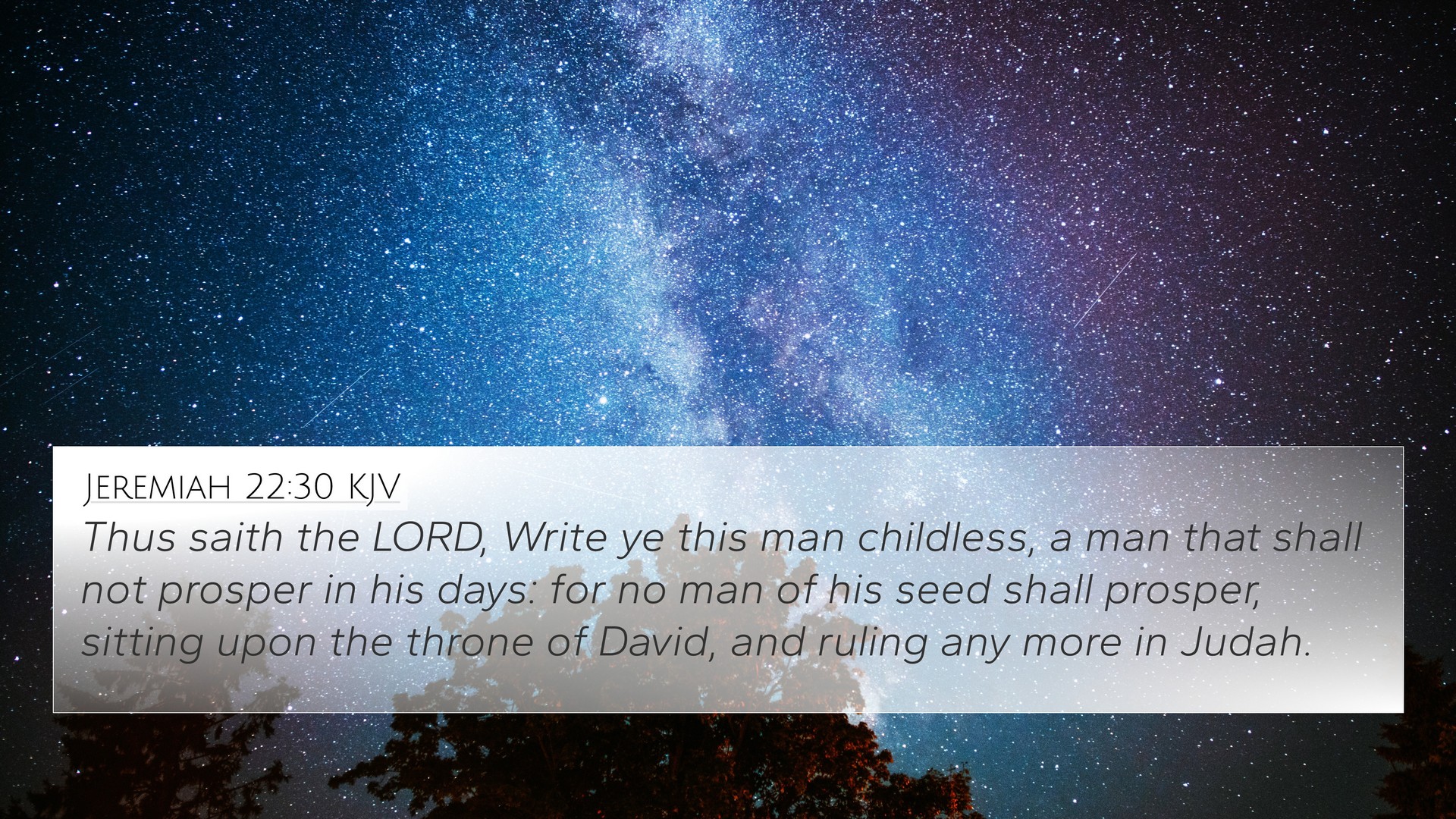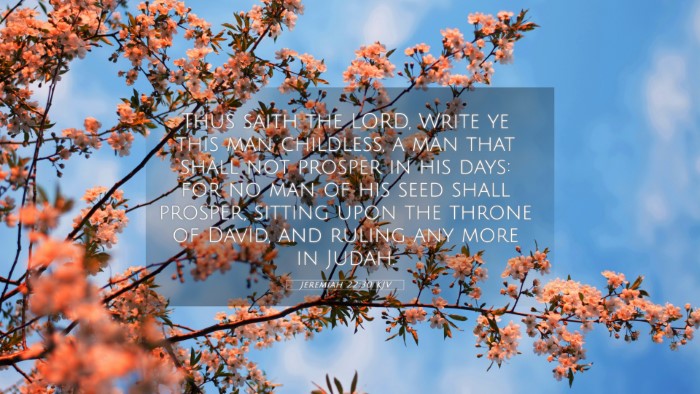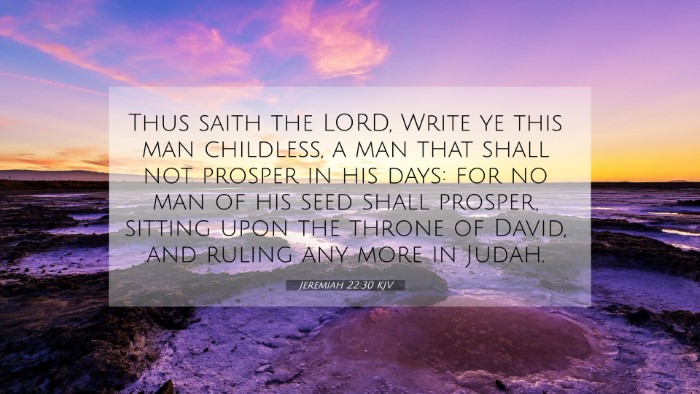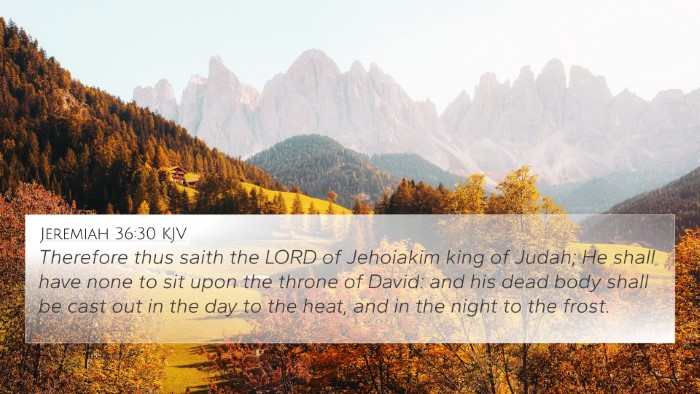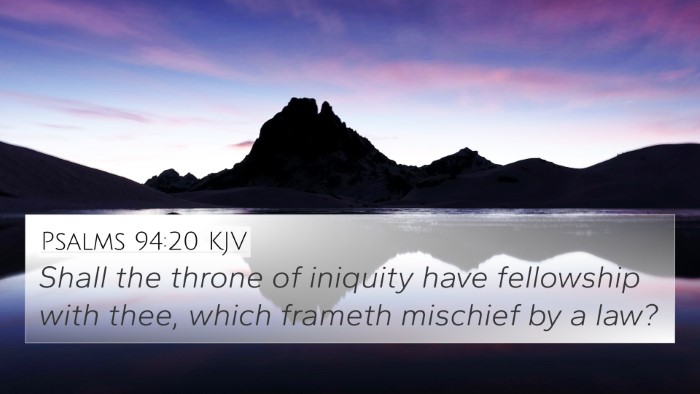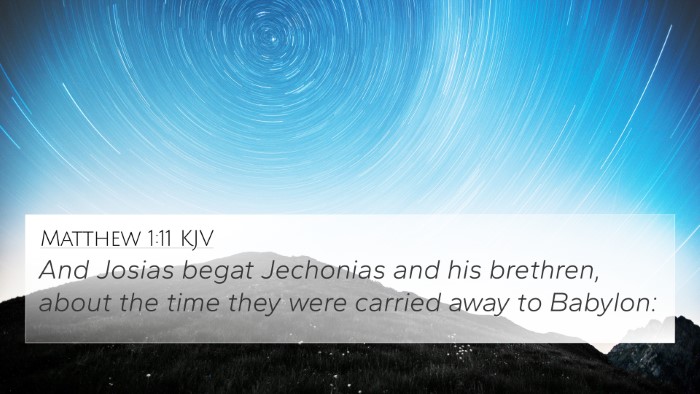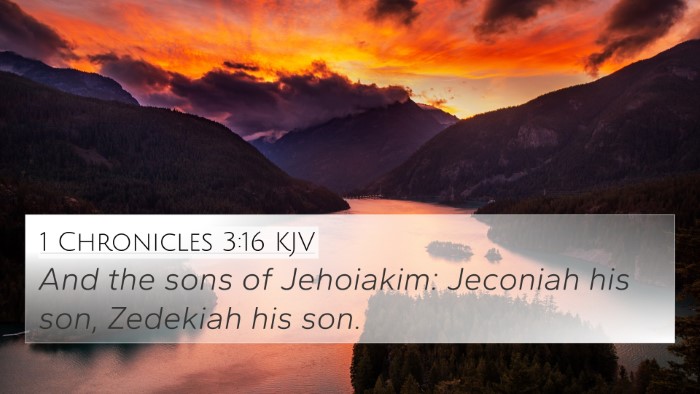Jeremiah 22:30 states: "Thus saith the Lord, Write ye this man childless, a man that shall not prosper in his days: for none of his seed shall prosper, sitting upon the throne of David, and ruling any more in Judah." This verse reflects God's judgment upon Jeconiah (also known as Jehoiachin), the king of Judah, who was taken captive by Nebuchadnezzar.
The meaning of this verse can be explored through various perspectives provided by public domain commentaries, such as those of Matthew Henry, Albert Barnes, and Adam Clarke.
Contextual Background
This verse is situated in a prophecy concerning the fate of the kings of Judah. Jeconiah is warned of the severe consequences of his actions, which ultimately led to his downfall and exile.
Commentary Insights
-
Matthew Henry: Henry emphasizes the idea that this proclamation symbolizes the rejection of a lineage corrupt in leadership. The absence of progeny implies a cessation of royal authority, highlighting the importance of righteous leadership in Israel’s history.
-
Albert Barnes: Barnes notes the historical significance, asserting that Jeconiah’s captivity and the prophetic statement served as a definitive conclusion to his lineage’s claim to the throne. The divine decree underscores God’s sovereignty over the affairs of nations and the fate of individuals.
-
Adam Clarke: Clarke elaborates on the significance of being "childless," interpreting this as more than mere physical childlessness, hinting instead at the metaphorical discontinuation of David’s royal line through Jeconiah, which had profound implications for messianic expectations.
Theological Implications
This verse reflects significant theological implications, including:
- God’s authority in enacting judgment against disobedience.
- The prophetic nature of scripture that foretells the consequences of unfaithfulness.
- The larger narrative of redemptive history in which Christ emerges as the fulfillment of the Davidic covenant, despite the apparent void in the royal lineage.
Related Bible Cross-References
- 2 Kings 24:8-17: This passage recounts the events surrounding Jeconiah's captivity.
- Jeremiah 36:30: A further declaration about the fate of Jeconiah and his lineage.
- Matthew 1:12: A genealogy of Jesus that traces back to Jeconiah, highlighting the importance of this prophecy.
- Ezekiel 21:25-27: A description of judgment upon the "wicked prince" and implications for the royal line.
- Isaiah 39:6-7: The prophecy concerning the exile of the sons of the kings of Judah.
-
- Hebrews 7:14: Clarifies the significance of Jesus coming from the tribe of Judah, despite the line being interrupted through Jeconiah.
- Luke 3:27: A genealogy that includes Jeconiah, emphasizing the significance of his lineage.
- Jeremiah 23:5-6: Prophetic assurance of a righteous branch from David's line, connecting to themes in Jeremiah 22:30.
Conclusion
Jeremiah 22:30 serves as a profound reminder of God’s judgment and the importance of fidelity to His covenant. By cross-referencing this verse with others, we see a comprehensive picture of biblical prophecy, judgment, and the unfolding narrative of redemption. Understanding these connections deeper enriches our study of the Scriptures, providing insight into God's unfolding plan from the Old Testament to the New Testament.
Thematic Considerations
This passage encourages readers to explore Bible verse cross-references and discover connections between Bible verses to grasp how the Scriptures interact with thematic elements of judgment, redemption, and God's faithfulness. Utilizing tools for Bible cross-referencing can deepen one’s understanding of these vital themes throughout the Biblical text.
